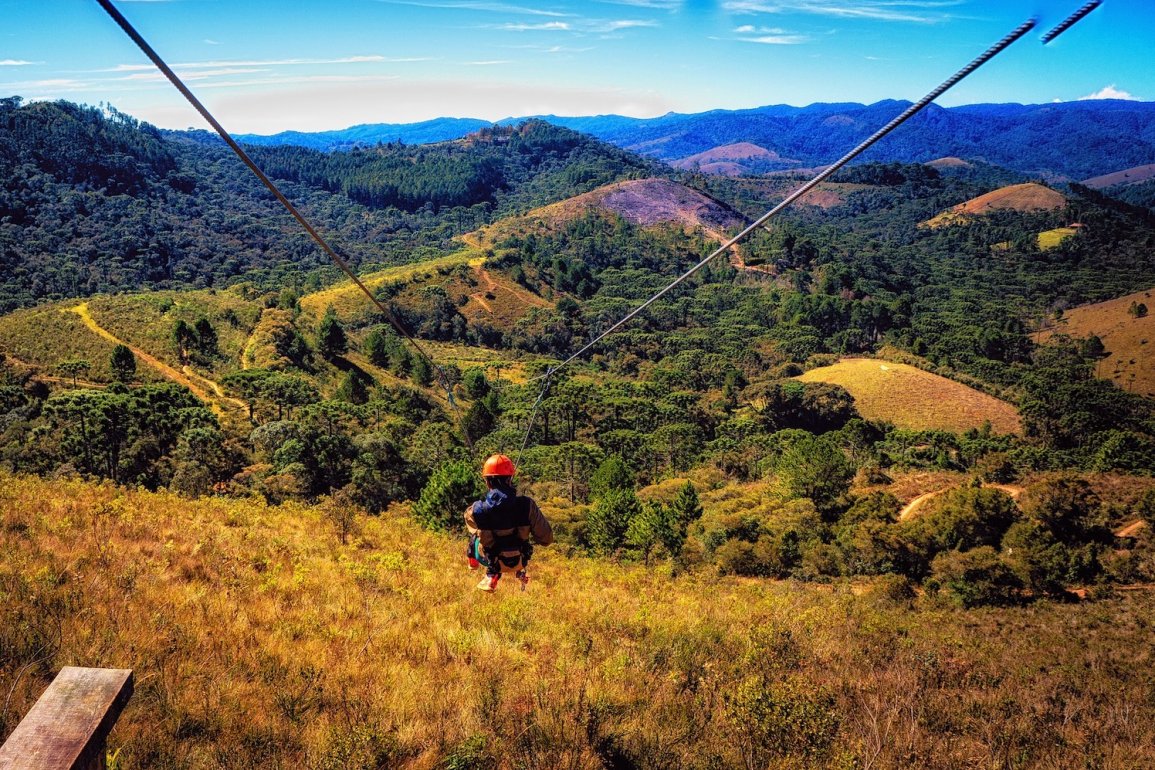By Lisa Byron and Jose Leal and originally published on radicalpurpose.org

THE RADICAL JOURNEY AND KEY REALIZATIONS

Many of us sense that something is desperately broken in today’s society and the institutions and organizations we’ve created. The relentless pursuit of growth and profit leaves many of us feeling overworked, overwhelmed, and woefully unfulfilled.
In our work environments, we are surrounded by people with no light in their eyes. Our innate passion and creativity have been sucked out of us by mechanical and soulless systems that name and treat human beings as “resources.” It’s a legacy philosophy and mindset that views companies as “machines” and people as replaceable cogs in the machine.
This paradigm has far outlived its purpose and humanity’s ever-evolving consciousness. This has left many of us feeling frustrated and broken, inwardly sensing that there has to be a more nurturing and inclusive way — a better way of living, and being, and working together with a purpose that inspires us and aligns with our intrinsic drives for meaning and belonging in life.
What if this new way of working and living is possible? What if we can break free from the systems of command and control, honor our human needs and drives, and co-create collaborations that are more conscious, purposeful, and fulfilling?
We believe we can.
And over the past three years, the Radical team has been working to define such a future. Our path has had many twists and turns — often going down dead ends. Only to dust ourselves off and start anew.
The time has come to let the world know what we have discovered and what we have created to help realize human-centric ways of being, living, and working together.
People are the Key
Like many others working to bring about next-stage organizations, we started our efforts with practical changes to the structures and tools of work. They seemed to be reasonable steps forward, but we kept feeling like we were missing a fundamental element.
We knew people’s worldview and mindset were a critical part of the puzzle, but we had difficulty connecting the human component to the practical elements. We moved our attention to people’s innate needs and helping to bring understanding to how we can learn to live fulfilling lives of purpose.
Again, we lost sight of the link between people and their work — it became about self-knowledge and personal growth with little connection to work or its structures.
The answer, we realized, was the relationship between our human needs and the way we work. It’s not one or the other — it’s both. The magic is in how our innate motivations determine the ways we work.
The Future of Work
We have come to realize that the future is here. We have only to connect the pieces. That’s what Radical has been doing — connecting the disparate pieces of the giant puzzle that is the future of work. We owe the pioneers a debt of gratitude for their tireless work over the last 40 plus years. Without their vision and foundational efforts, we would not be where we are today.
OUR CURRENT THINKING AND CREATIONS

Putting it All Together
We realized that we had to zoom out to get a big-picture view of the current reality. We needed a new lens that brought into view the fundamental cause of the dysfunction in work and our lives. The issues arising from the way we work emanate from a much deeper place than the organizations themselves. They come about from the worldviews and mindsets that make up the paradigm we live in — we call it the Force Paradigm. It is causal, and the subsequent dysfunction and suffering are an effect.
Force Paradigm

Humanity is living and working in a paradigm of force that has created ubiquitous command and control systems. As children, our parents and teachers taught us to follow the “RULES.” As adults, our bosses box us into “ROLES” and hierarchical structures that constrain us — further limiting our genuine expression of ourselves. Organizations accordingly and unwittingly dominate “US” at every turn. And, in the process, the result is mass collateral damage.
The Force Paradigm is all around us. It has become how we see the world. Shifting away from it will require that we first learn to see it and then overcome its influence. We believe we cannot do this individually — we must do it collectively for real change to emerge.
Radical Declaration of Interdependence
Through the years, we felt a need for a call to action that went beyond simply making work a little more self-managed or people aware of their plight. We wanted to break free of the Force Paradigm and, in so doing, create a clear manifesto for the Future of Work. After several iterations, we have published version 3.0 of the Radical Declaration of Interdependence.
The declaration focuses our efforts on individuals making five key shifts:
- Recognize Nature is Life
- Seek Freedom and Dignity
- Live My Radical Purpose
- Collaborate Through Needs
- Make a Collective Impact
These five points are our rallying cry for the Future of Work and the future of humanity. Shifting away from a paradigm of force means understanding our true nature.
A PDF of the declaration can be downloaded here
Needs Paradigm
We believe the coming shift is towards wholly embracing our human nature. It’s time the pendulum swings away from a focus on systems and towards a focus on people. Psychologists Abraham Maslow and Marshal Rosenberg, along with neuroscientist Antonio Damasio, point to the fulfillment of innate human needs as the essential aspect of human thriving. It is these needs that drive our feelings and guide our behavior.
The suffering we see caused by the current Force Paradigm results from our needs not being met. When our needs are met, two things happen; we feel fulfilled, and we live the purpose that we were born to express. We call this emergent sense of purpose our Radical Purpose because it is the fundamental root of our behavior.
RADICAL PURPOSE

Radical Purpose

To shift towards the Needs Paradigm, we need clarity about our human nature. Abraham Maslow defined the Hierarchy of Needs nearly 80 years ago. Though research has dramatically advanced our knowledge of human needs, Maslow’s hierarchy remains the most recognized model of needs. We felt it was time to create a framework that captures the dynamic nature of human needs as current psychologists and neuroscientists understand them. The Radical Purpose Framework is not a hierarchy but a set of interdependent innate needs that interplay to guide our behavior.
The Radical Purpose framework is not only based on science, but is underpinned by the many spiritual traditions that evoke the power of listening to our inner selves. The five radical needs of Being, Meaning, Impacting, Belonging, and Becoming are often quintessential parts of a spiritual journey. They are also physical processes that cause fulfillment when met and suffering when not met.
Radical Purpose Profile
Though all healthy people have these needs, we each have them in different degrees. Understanding which of the needs we are high in helps us know ourselves, our feelings, and our behaviors better.
This understanding led us to develop an assessment app to provide people with their needs profile in as little as 6 minutes. The app remains in early Beta and is currently free to use.
Needs and Feelings List
The Non-violent Communications community has for some time been working with needs. Our realization that many of the lists of needs and feelings are not clearly tied to a modern framework led us to start developing the Radical Needs and Feelings list. This project is a research effort to correlate everyday need terms to the Radical Needs and their positive and negative feelings.
This list is a living document that will continue to be updated as research becomes available.
Collaborative Tools
Freedom from force and constraining systems will leave us untethered. And needs-based collaboration will challenge us to step into evolving and higher expressions of ourselves. For the group, the whole, to collaborate in transformative ways, we will shift to a mindset of growth through Radical Purpose, taking responsibility, making and keeping commitments, and co-creating tools such as forming agreements, making decisions, etc.
The new tools of collaboration will be co-created and remain the responsibility of the collective. These new tools can never revert to force-based rules if we are to maintain our needs for meaning and autonomy.
Collaborative Operating Agreement

One of the first tools we have been developing is a new kind of organizational structure we call a collaborative. Efforts are underway with our colleagues at QOLIE to create the first collaboratives in France, the USA, and Belgium. As the project progressed, we saw the need for a Collaborative Operating Agreement.
Over the last year, a small team of five people has been working on an open-source sample agreement to share with the Future of Work community. The agreement is modeled on the concepts of visual contracts and conscious contracts®. We are hoping that the project will continue to grow across multiple languages and countries.
Collaborative Operating Agreement
Collaborative Canvas
Another collaborative tool we have been working on is the Collaborative Canvas to help teams look at themselves and their contexts from a needs-based lens. We are used to building strategies and subsequent efforts to create alignment in the world of the Force Paradigm. It seems like that’s the way to make things happen in the current paradigm.
What if we could let strategy and alignment emerge from the collective needs of those involved? That’s the purpose of the Collaborative Canvas. A tool that can help us bring about clarity in ourselves, our teams, and our impacts.
Bringing it all together
Moving forward, these interconnected and interdependent projects serve as the basis for our workshops. As we slowly build up our offerings to the broader community, we seek to integrate all the lessons of the last three years and our collective experience in the old world of force.
These will be experiments in learning a new language, new ways of thinking, and new ways of seeing ourselves, each other, and work. We don’t expect this will be an easy journey — we know that creating new paths is challenging and that breaking free of old paradigms is even harder.
Featured Image added by Enlivening Edge Magazine.




